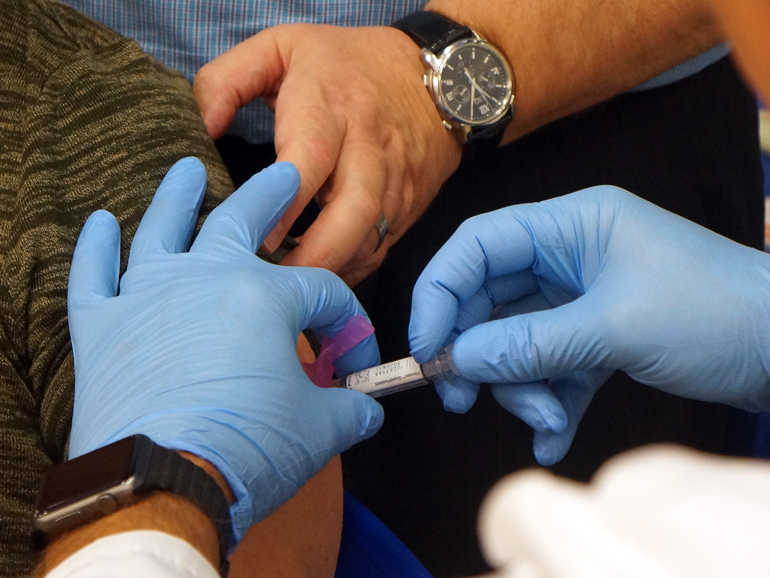With flu season underway in the southeast the Saskatchewan Health Authority is looking to keep people caught up on what they can do to keep healthy.
With colder temperatures forcing more people indoors, the spread of those illnesses is also a factor that needs to be taken into account.
Medical Health Officer for the Southeast Dr. Stanley Enebeli talks about some of the illnesses the area is dealing with now.
"Right now we have a couple of respiratory illnesses of viruses circulating in our communities, of note is rhinovirus, which is the common cold. We've seen that circulating as well as influenza. So the flu is also circulating and then we've also seen a trace of RSV, which is the respiratory syncytial virus circulating here in our corner of the province."
Enebeli says that all three are have weight for the SHA, but the general flu is usually the most focused on.
"We are interested in all these respiratory viruses that could cause illness in our communities, but of concern to us is influenza. Generally, the symptom presentation can be similar for these colds, they could have symptoms like a runny nose, sneezing, fever, coughs, and some people experience body aches as well. For most people, they do experience mild to moderate symptoms of these viral illnesses."
"For influenza, to be specific, and also the common cold can be treated with rest and fluids taking a lot of fluids, but definitely if you're worried about your symptoms or you're willing to experience worsening symptoms or serious complications, please do consult your healthcare provider as they may prescribe treatment or recommend steps or medications that you could take."
In order to keep from getting sick Enebeli details some of the steps people should take to keep from getting sick.
"The best way to protect yourself, your family and coworkers is true vaccination. Getting the flu shot, for instance, is very helpful and practicing good hand washing, cleaning and disinfecting high-touch surfaces, and of course, stay home if you are sick would also help reduce spread. Also, it's good to eat well and get plenty of sleep and exercise. This keeps your body strong, so it can now fight these infections."
Residents can also keep an eye on how illnesses are spreading around thanks to a report put out by the province.
"We do have a way if you are interested in monitoring indicators related to respiratory illness. There's actually a report being produced provincially, it's called the Community Respiratory Illness Surveillance Program report, CRISP for short. So that does give an idea as to the test positivity of influenza and other respiratory illnesses. So I would say that's a good starting point to look at and you can actually look up designated areas of the programs to see what the test positivity is. So I think that's a good place to start."
You can find more info on the province's CRISP reports here.
